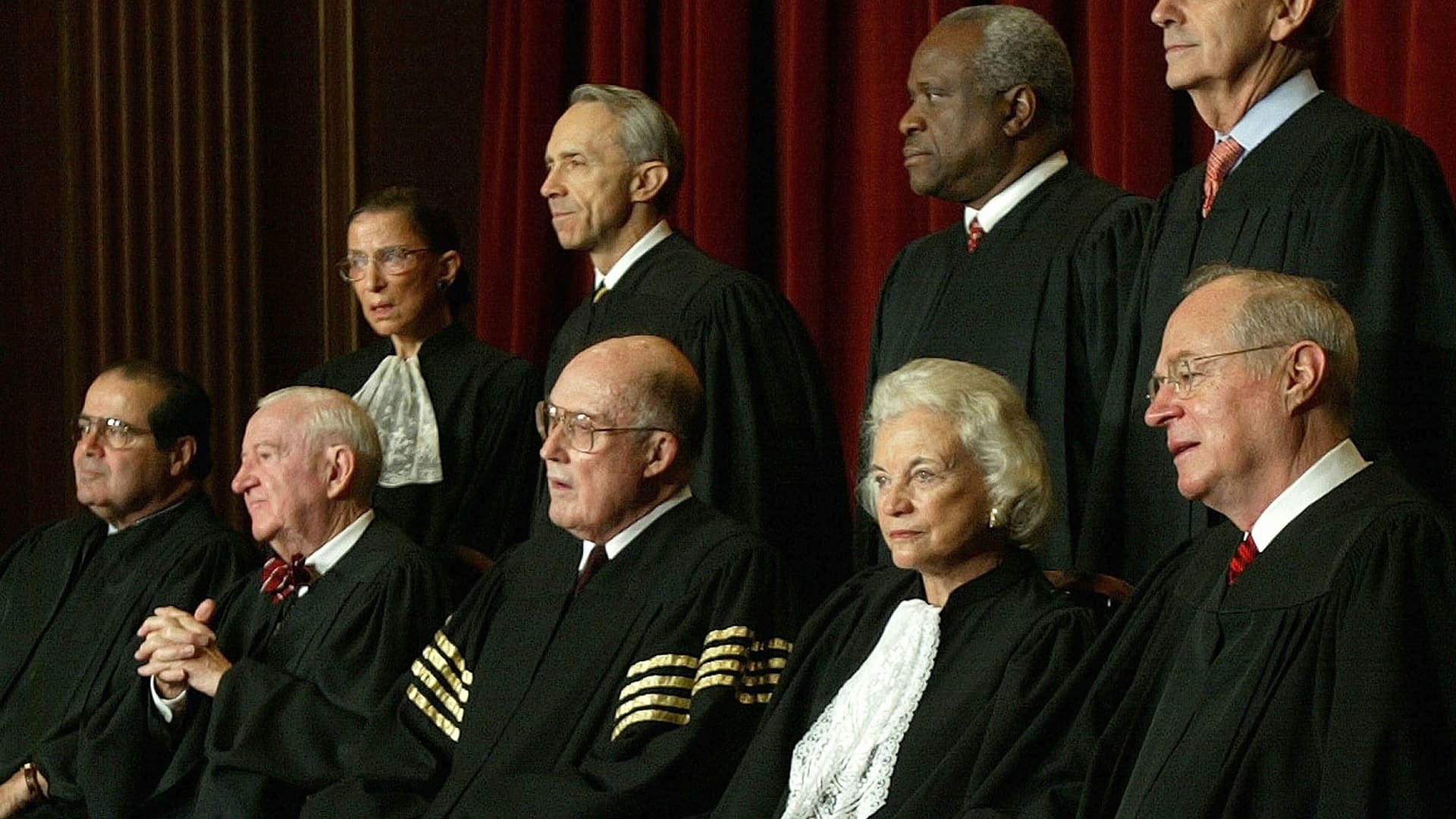
Sandra Day O'Connor, the first woman to serve as a justice on the Supreme Court, has died. She was 93 years old.
O'Connor died in Phoenix, Arizona on Friday of "complications related to advanced dementia, probably Alzheimer's, and a respiratory illness," the court announced.
President Ronald Reagan named O'Connor to the court in 1981 to fulfill a campaign promise to appoint the first female justice, according to her bio on the court's website. Fifty-one years old at the time of her nomination, O'Connor served for more than 24 years before retiring in 2006.
While on the court, O'Connor was referred to as the most powerful woman in the country, as she served at the center of a sharply divided bench during a crucial period when abortion, affirmative action, voting rights and sex discrimination were all on the docket.
Get Southern California news, weather forecasts and entertainment stories to your inbox. Sign up for NBC LA newsletters.
O'Connor often cast the deciding vote on a wide range of issues, including abortion, affirmative action and religion. By the time she retired, she cast the deciding vote in over 350 Supreme Court cases, the Sandra Day O'Connor Insitute reports.
Here are three landmark decisions in which O'Connor played a key role:
Preserving the right to abortion
Money Report
In the 1992 case Planned Parenthood v. Casey, O'Connor broke with Chief Justice William Rehnquist and other conservative opponents of a constitutional right to abortion under the 14th Amendment as part of a 5-4 majority in affirming Roe v. Wade.
Reading a summary of the court's decision in Planned Parenthood v. Casey, Connor said that even though "some of us as individuals find abortion offensive to our most basic principles of morality … that can't control our decision."
Instead, the court's obligation is "to define the liberty of all, not to mandate our own moral code," the opinion added.
In June 2022, the court overturned Roe v. Wade, effectively ending the federal constitutional right to abortion in the United States.

Striking down sex discrimination
Although O'Connor often voted with the court's conservative bloc on cases involving race discrimination, she sided with the court's more liberal justices on cases concerning discrimination on the basis of sex.
She cast the deciding vote in the court's 1982 ruling in Mississippi University for Women v. Hogan, which set the legal test for future gender discrimination cases — and led to the admission of women to the Virginia Military Institute in 1996.
The question in the case was whether MUW, a public university, could constitutionally exclude male students. A state could not, O'Connor wrote in the court's decision, base admission decisions on "archaic and stereotypic notions" of "proper" roles for men and women.
Defending affirmative action
O'Connor defended affirmative action practices by universities to increase educational opportunities for minorities and promote racial diversity on campus in the 2003 case Grutter v. Bollinger, which upheld an affirmative action admissions program at the University of Michigan Law School.
"Affirmative action's benefits are not theoretical, but real," she wrote for the 5-4 majority. "Effective participation by members of all racial and ethnic groups in the civic life of our nation is essential if the dream of one nation, indivisible, is to be realized."
Her opinion did, however, suggest that affirmation action policies should not continue in perpetuity. "The court expects that 25 years from now, the use of racial preferences will no longer be necessary to further the interest approved today," she wrote.
Less than 25 years later, the court effectively ended the use of race in college admissions, ruling in June 2023 that affirmative action policies at Harvard and the University of North Carolina that consider a student's race for college admissions are unconstitutional.
Join the CNBC Work Summit on Dec. 6 to hear from leaders and experts, including Harvard professor Arthur C. Brooks, discuss how AI could transform the future of work. Register here today.
DON'T MISS: Want to be smarter and more successful with your money, work & life? Sign up for our new newsletter!
Check out:






